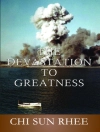In ‘A Question of Latitude, ‘ Richard Harding Davis intricately weaves a tale of moral dilemmas and personal conflicts set against the backdrop of early 20th-century American society. The narrative unfolds with a keen eye for detail, blending prose that is both elegantly crafted and accessible, inviting readers into a world where character complexities confront societal expectations. Davis employs a combination of realism and romanticism, echoing the themes of dislocation and identity that were prevalent in literature of the period. This novella captures the essence of its time, exploring the tensions between progressive ideals and entrenched conventions as it dissects human relationships and ethical choices. Richard Harding Davis was a renowned American journalist and author whose experiences in various cultural landscapes significantly influenced his writing. His work often drew from his travels and his interactions with diverse characters, shedding light on the social nuances of his time. Davis’s firsthand accounts of war and society informed his narrative style and thematic concerns, enabling him to skillfully portray the inner lives of individuals caught in the throes of change, as illustrated in ‘A Question of Latitude.’ This book is a must-read for scholars and enthusiasts of American literature, as it offers a profound exploration of character and society. It invites reflection on the intricate balance between one’s desires and societal pressures, making it particularly relevant in today’s context. Davis’s keen insights and narrative prowess ensure that readers will be both entertained and intellectually stimulated, rendering ‘A Question of Latitude’ an enduring work worthy of exploration.
लेखक के बारे में
Richard Harding Davis (1864–1916) was a distinguished American writer and journalist, heralded for his vivid reporting and fictional accounts that encapsulated the spirit of his era. Born into a literary family in Philadelphia, Davis was the son of a prominent journalist and a novelist mother, providing him with a rich literary heritage that greatly influenced his career. With a distinctively engaging narrative style, he wrote numerous novels, short stories, and works of non-fiction, often incorporating themes of adventure and romanticism amid the historical contexts of his time.
Davis gained recognition for his firsthand accounts as a war correspondent during pivotal conflicts such as the Spanish-American War and World War I. His writings exemplified the transition from Victorian to modern literary styles, merging traditional storytelling with burgeoning journalistic realism. ‘A Question of Latitude’ is one of many works that showcase his capabilities in encapsulating the geopolitical nuances of the early 20th century. Davis’s impact on literary journalism was profound, and his works continue to be studied for their historical content and literary merit, capturing the essence of the adventurous spirit and the evolutionary passage of journalism.












